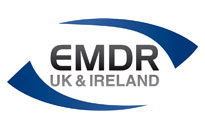What causes headaches?
Many headaches are caused, at least in part, by our reactions to stress. Learning techniques to avoid stress (or your response to stressful events) can help in the treatment of migraines and tension headaches.
What can we do about them?
Headaches, however caused, respond well to relaxation techniques. We employ a number of strategies, including hypnosis, stress management, cognitive therapy, and meridian therapies, to help you gain control over headaches.
The use of hypnosis in the treatment of a variety of headaches is well documented. Children may also benefit from hypnotherapeutic techniques. In a review of over 50 children, suffering from both migraine headaches and tension headache, 80% reported a major improvement after five or less sessions of hypnotherapy (Temes, Medical Hypnosis, 1999).
A further research programme took place in the Netherlands in 1992 (1 & 2). Once again, hypnosis, along with autogenic training (which we also use) was an effective way of treating severe headaches. Many of the subjects in this trial were referred from a neurologist, their headaches were so severe.
EFT – emotional freedom technique – is a fast and effective way to control headaches, even hangovers! This therapy can be taught in one session and is almost like having headache relief instantly available to you, whenever you need it.
How we can help
Although there are many causes of headaches, stress and tension are a common trigger. There may also be subconscious reasons, often to do with avoidance and secondary gain, why we get headaches at certain times. The use of hypnosis, therefore, may not only reduce the stress, but may be able to pinpoint specific triggers. The use of a ‘diary’ is a useful tool in analysing the possible cause of your headaches.
As can be seen from the research below, hypnosis can also help migraine sufferers. Alongside lifestyle advice and stress management, the use of hypnotherapy and self hypnosis can be effective in the treatment of migraine headaches in both children and adults.
Cluster headaches can be excruciating. The pain has been likened to that of an icepick and suffers often resort to strong pain medication as the only way of relieving symptoms. As the name suggests, cluster headaches occur in clusters- often very frequently over several weeks or months, then subside for long periods of time, only to reoccur again. They often occur in the evening, even whilst the sufferer is asleep, and a runny eye and blocked nose often accompany them. Cluster headaches usually occur in men, and are associated with alcohol sensitivity. Since stress is a common trigger, stress management techniques, including relaxation, autogenics and guided imagery and hypnosis may all be effective.
Recent research also suggests that EMDR – eye movement desensitisation and reprocessing – may help alleviate the pain of headaches and migraine, particularly if caused by an emotional trigger.
References
1.Zitman FG; Van Dyck R; Spinhoven P; Linssen AC. Hypnosis and autogenic training in the treatment of tension headaches: a two-phase constructive design study with follow-up. Department of Psychiatry, Catholic University, Nymegen, The Netherlands. J Psychosom Res (ENGLAND) Apr 1992, 36 (3) p219-28.
Also Kuile MM; Spinhoven P; Linssen AC; Zitman FG; Van Dyck R; Rooijmans HG Autogenic training and cognitive self-hypnosis for the treatment of recurrent headaches in three different subject groups. Department of Psychiatry, University of Leiden, The Netherlands. Pain (NETHERLANDS) Sep 1994, 58 (3) p331-40
2. Anderson, J. A., Basker, M. A. and Dalton, R. (1975). Migraine and hypnotherapy. International Journal of Clinical and Experimental Hypnosis. 23(1). 48-58.
Clinical studies
Compared the treatment of migraine by hypnosis and autohypnosis with the treatment of migraine by the drug prochlorperazine. Results show that the number of attacks and the number who suffered blinding attacks were significantly lower for the group receiving hypnotherapy than for the group receiving prochlorperazine. For the group on hypnotherapy, these two measures were significantly lower when on hypnotherapy than when on previous treatment. It is concluded that further trials of hypnotherapy are justified against some other treatment not solely associated with the ingestion of tablets.
In a study conducted by Anderson (1975), migraine patients treated with Hypnosis had a significant reduction in the number of attacks and in their severity compared to a control group who were treated with traditional medications. The difference did not become statistically significant until the second six-month follow-up period. In addition, at the end of one year, the number of patients in the Hypnosis group who had experienced no headaches for over three months was significantly higher.












